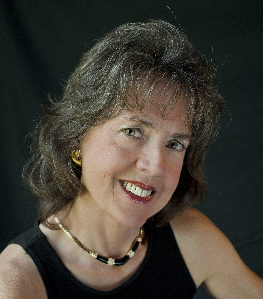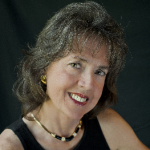
Author Interview – Marsha Cornelius, The Ups and Downs of Being Dead
 Author Interview – Marsha Cornelius, The Ups and Downs of Being Dead
Author Interview – Marsha Cornelius, The Ups and Downs of Being Dead
After working for fifteen years as a cafeteria manager in an elementary school, Marsha Cornelius turned in her non-skid shoes for a bathrobe and slippers. She now works at home, writing novels, acting out scenes with her cats, and occasionally running a Swiffer across dusty surfaces.
Like thousands of others, she thought she could write romance, but soon discovered she was a dismal failure. She did increase her repertoire of adjectives such as throbbing, pulsing, thrumming, vibrating, hammering, pumping . . .
She resides in Atlanta with her husband. Her two grown sons occasionally visit for clean laundry and a hot cooked meal.
Her latest book, The Ups and Downs of Being Dead was just released to the public in June, 2012. So far, all reviews have been 4- and 5-stars.
What would you say are the main advantages and disadvantages of self-publishing vs being published?
I think one of the biggest disadvantages of self-publishing is that the author does not have an advocate who will advise and protect her or him, like an agent does.
The self-publishing companies are more than happy to take your money and offer you very little in return. My personal experience with i-Universe, also known as Author House, was very disappointing, and costly. And most of that was my fault because I just didn’t know any better.
Negatives of using an all-in-one self-pub house:
1. The cost is exorbitant to format your book. (And it is so easy to do yourself!)
2. The house sets the price on your paperback, and it is way too high.
3. Customer service can be poor to mediocre. (It was amazing how many ‘meetings’ my representative was in and could not be reached.)
4. Every service, no matter how small, has a price tag.
The biggest advantage is keeping your autonomy, your freedom to write what you want without a publisher requiring changes to make your book fit their market. The movie industry went through a similar revolution years ago. The big-name studios had parameters, and if a filmmaker didn’t fit into the box, the movie wasn’t made. So filmmakers decided to get their own financial backing, they hired their own crew, and they created the independent film industry.
Who edited your book and how did you select him/her?
My editor is Kristen Weber. She was an acquiring editor for two commercial book publishers before becoming a free-lance editor. She read my manuscript with a critical eye and made many valuable suggestions that I had missed, or didn’t know about.
Although I am a self-published author, I started out with an agent. She recommended Kristen, who worked with me before my agent approached publishers. Then, after spending more than a year trying to find me a publisher, my agent finally suggested that I try self-publishing.
Because self-publishing is relatively easy, some authors believe they can circumvent all ‘traditional publishing’ steps. But you cannot produce a quality product without an editor. If you don’t believe this, pick up any book on your shelf and flip to the acknowledgements. Every author (Stephen King, James Patterson, J.K. Rowling, Karin Slaughter) uses an editor, and they thank them for their invaluable input. If they need an editor, then so do you.
And I’m not talking about someone in your critique group or writers’ club. This isn’t your mother or your spouse. This is a professional editor.
What marketing tools do you use to improve your ranking on Amazon?
The best tool I have found is Kindle Direct Publishing Select Program. This gives Amazon exclusive rights to your e-book. At first I was leery of going just with Kindle. I was afraid I would lose sales to Barnes & Nobles’ Nook, and Apple’s i-store. But the sales from those distributors is miniscule compared to my sales through Amazon.
KDP Select allows free day offers that are an incredible boost to my sales. At times, I have had one of my books listed on Amazon as #1 in free books, and in the top 10 paid bestseller in drama. Nothing that Smashwords, or B & N or Sony has done can come close to those numbers.
I also use Twitter, Facebook, Goodreads, and LinkedIn to promote my books.
What do you do to get book reviews? How successful has your quest for reviews been so far?
I have found some absolutely wonderful book reviewers on Twitter and Goodreads. I send a brief synopsis of my book (usually the back cover blurb) and just request a review. So far, I’ve had fantastic results. My overall rating for each of my books is around 4 ½ stars on both Amazon and Goodreads.
Every now and then someone writes an unflattering review, but obviously you can’t please everyone. I don’t dwell on it. (I’ve had bad things to say about books myself.)
And don’t overlook friends and acquaintances. Anytime someone says they read your book and liked it, that’s your cue to request that they post a review. I always emphasize that this doesn’t have to be a long review. Just three or four sentences that describe what they liked about the book or its characters.
How did you get to be interviewed on radio shows/TV shows?
So far, this has been a relatively untapped resource for me. But I found BlogTalkRadio a couple months ago, so I am busy lining up interviews as we speak. They have a category called Books Talk Radio with tons of shows. I do the same thing I do for reviews – send them an e-mail with a synopsis of my book, and request an interview. Most of these people are willing and eager to set up something. It’s the whole point of their show.
Thank you Marsha for taking the time to answer a few questions
Have a look at her book , click on “Look inside” and browse to the first few pages to see if you like it,
